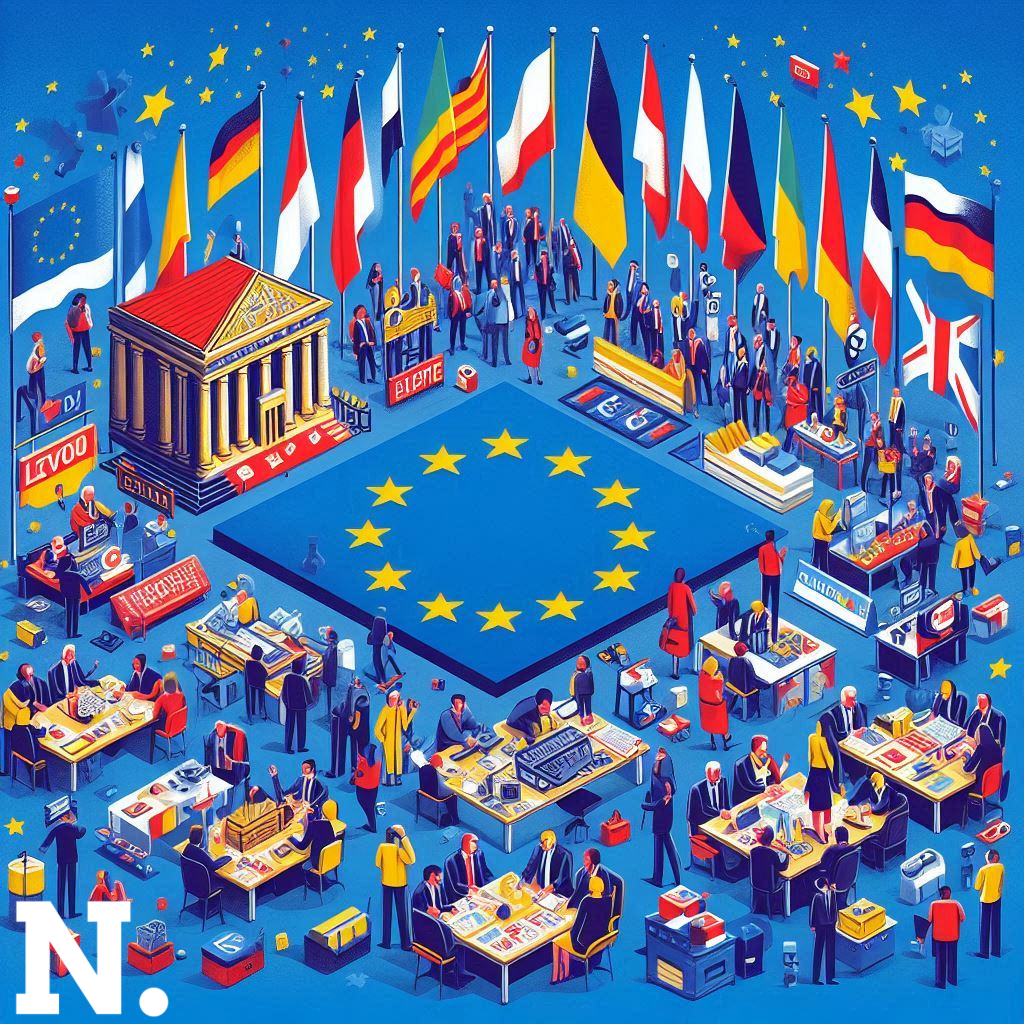The European Parliament election is set to start from June 6 to June 9. This would be the tenth parliamentary election since its inception in 1974. The European Parliamentary elections are held in regular intervals after every five years. This election would be something to look forward to as this would be the first election held after BREXIT. This election is said to be a global democratic event. This would determine whether European Commission President, Ursula Von der Leyen still remains the representative of the European Union.
Electorate of the European Parliament
Around 400 million European citizens would form the electorate for electing the Members of European Parliament (MEP). The voting is done by direct universal suffrage through a single ballot system. On an average the voting age is 18 years. Although some countries like Belgium, Germany, Malta, Austria permit citizens to vote at the age of 16. In Greece the minimum voting age is 17 years.
The voter turnout of the European parliamentary elections is quite less, with the maximum of 72% in 1979. According to the European Parliament’s Eurobarometer, 71% people have shown their will to cast a vote at the upcoming elections.
Contestation for the European Parliament
In order to contest European Parliamentary elections 18 is the minimum age for most of the countries, although in Greece and Italy the limit is 25 years. The number of members in the European Parliament are directly proportional to the population of that country. Germany has 96 members while Cyprus, Malta and Luxembourg have only 6 members. 751 members were elected in the year 2019, which got reduced to 705 after the BREXIT in 2020. Currently the Parliament would have 720 members, 12 countries receiving extra seats. The contestants participate in the elections through their national parties, later on joining the transnational political groups after getting elected.
The center-right European Peopl’e’ Party (EPP) is the largest political group in the European Parliament. In April 2019, the last plenary session they held more than 170 seats in the Parliament.
With 139 MPs, the S&D is the political group within the center-left Party of European Socialists and is now the second largest group. With 102 seats, the pro-business liberal and pro-European Renew group leads an alliance of 72 regionalist and green political parties.
The European Conservatives and Reformists (ECR) and Identity and Democracy (ID) party are the far-right third and fourth largest political parties in the European Parliament. Due to their many differences, it is uncertain how much the two parties could work together to influence EU policy, particularly with regard to the EU’s support for Ukraine in its war with Russia.
The pro-business and green political parties are expected to take a toll this year as they made big gains in elections held last year. However the EPP and S&D parties would remain stable.
EU Presidency: Re-election Prospects and Controversies
The President would be elected from 16 July to 19 July during the first plenary session. This would be done taking into consideration the weight of each political group in the parliament. In September, the negotiations are likely to be started for nominating the European Commission’s President. For which the member states are supposed to make a proposal for the nomination.
With 383 votes in favor, 327 against, and 22 abstentions, Ms. von der Leyen narrowly prevailed in 2019 to become the institution’s first female leader. The European commissioners will also address the parliament before they are approved by a single vote. Ms von der Leyer stands a good chance of getting appointed for a second term but he needs the support of enough leaders. However she has offended many lawmakers, by setting her will to work with the far-right political groups, depending on the outcome of the elections.
EU Citizens’ Top Concerns: Security, Health, Climate
The ongoing Russia- Ukraine war is a prominent issue in the minds of the European citizens. As it is affecting their economy at a large scale, it is the key campaign issue. Nine countries ranked the EU’s defense and security as their top national priority. Concerns about the public health system, climate change, employment, poverty and social exclusion, the economy, and Europe’s future are also frequently brought up.
The Role of European Parliament
The European Parliament is the only directly elected institution, acting as a counter power to the European Commission which is the European Union’s executive arm. The parliament doesn’t have the authority to pass or initiate a legislation, but over the period of time its powers are evolving. It can now vote on laws concerning financial regulations, agriculture, fishing, security, and justice, among other issues, demonstrating its competence.
The lawmakers also vote on the European Union’s budget, which is responsible for the implementation of European policies, for eg delivering aid to Ukraine.
The other EU institutions are under the supervision of the Parliament, especially the Commission. It can hold investigations, call commissioners in for questioning, and accept or reject the Commission’s nomination in its entirety.




